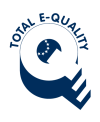Call for Abstracts for the 15th European Public Health Conference in Berlin
Strengthening Health Systems: Improving Population Health and Being Prepared for the Unexpected.
9 – 12 November, 2022 at Hub27, Messe Berlin
The 15th EPH Conference in Berlin will be the first conference since Marseille 2019 to take place live and in person! The spectacular space in Hub27 provides us with ample opportunity for informal chatting, personal exchange and live networking. We hope you will join us and we truly look forward to seeing everyone!
The focus of Berlin 2022 will be on health systems. We have learned from the Covid-19 pandemic that infectious diseases know no boundaries. We have seen the successful development of vaccines but also the spread of the Delta variant around the globe as these vaccines have not yet been available to everyone. The conclusion is simple: the EU must take on a more active role in global health. This includes taking a stand on expansive issues such as planetary health, climate change, environmental degradation, water and food security, migration, gender, and poverty.

 Am 29 und 30. Juni 2022 findet in Bielefeld die Jahrestagung des Forum Nachwuchs statt. Das Thema der Tagung ist „Infrastrukturen im planerisch-politischen Diskurs – Bestehende und neue Herausforderungen zukunftsfähiger Infrastrukturen“.
Am 29 und 30. Juni 2022 findet in Bielefeld die Jahrestagung des Forum Nachwuchs statt. Das Thema der Tagung ist „Infrastrukturen im planerisch-politischen Diskurs – Bestehende und neue Herausforderungen zukunftsfähiger Infrastrukturen“. The aim of this special issue is to collect inspiring and relevant cases of recent developments in land policies from different countries. By thus, the issue opens up a discussion and allows for reflecting viable pathways on sustainable urban development through land policies.
The aim of this special issue is to collect inspiring and relevant cases of recent developments in land policies from different countries. By thus, the issue opens up a discussion and allows for reflecting viable pathways on sustainable urban development through land policies. 


